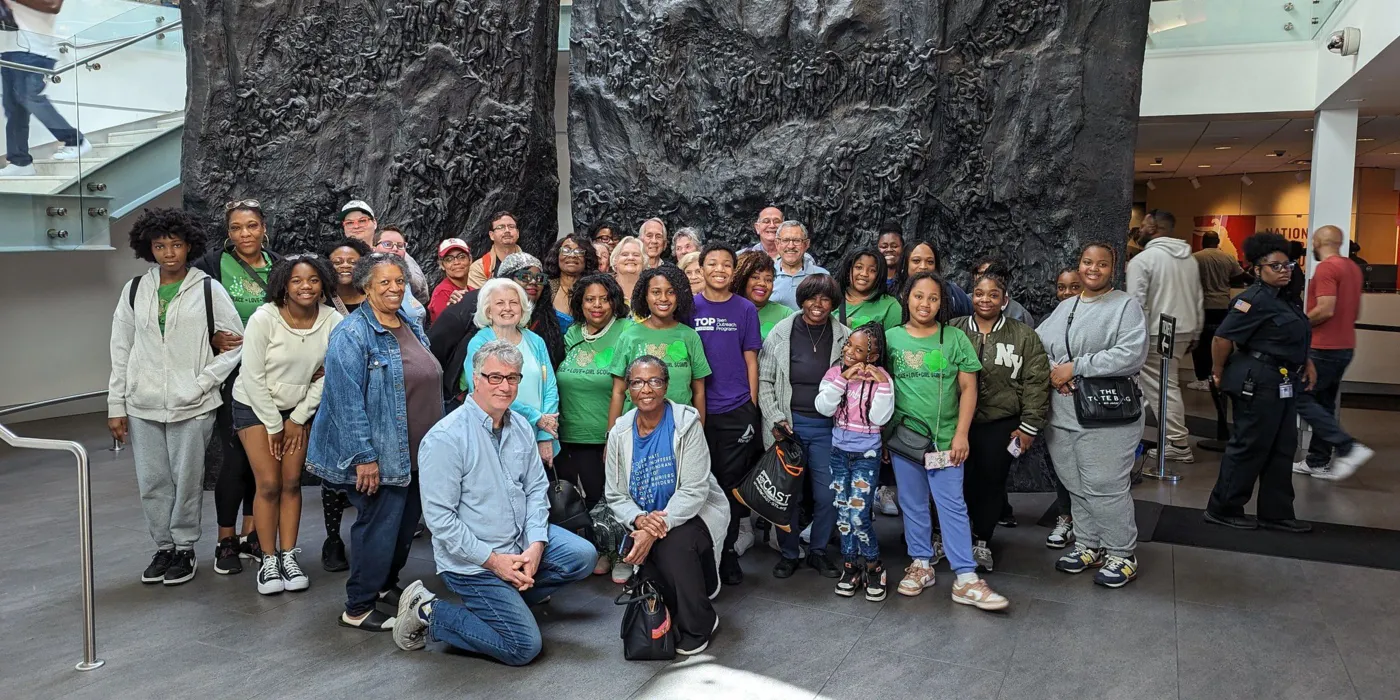
by Ian Caveny,
Special Projects Writer
Raging wildfires, powerful hurricanes, stifling droughts, sudden windstorms – it seems that there hasn’t been a year in recent memory without yet another occasion for a “record-breaking” weather phenomenon. And while the costs of these disasters seem startling to us in their severity and scale, the latest warnings from climate scientists propose that the worst is yet to come. And while so far the most visible forms of these climate change related disasters have occurred elsewhere, here in the Midwest we have already experienced hotter-than-usual summer weather, surprising torrential downpours, and a stubborn drought. The climate change crisis is here, and it brings with it challenges for everyone all across the world.
With such a severe crisis unfolding in our lifetimes, one begins to wonder what the role is for the average Christian person – especially as it is the case that the majority of fossil fuel emissions are the result of big corporations far more than individual actions? If we have a call to participate in the stewardship of the created world we share, what does that vocation of stewardship look like in the middle of a human-created ecological catastrophe far beyond the scope of any one individual person?
The Christian response to the climate crisis begins with the theological virtue of hope. Hope, Scripture teaches us, is the belief in a change and transformation yet to come that is not yet visible today. The Apostle Paul writes in his Letter to the Romans: “Hope that is seen is not hope” (Ro. 8:24). But hope is not content with simple well-wishing about the future; “couch-potato hope” is no less false than hope that is visible. Throughout the narrative of Scripture and throughout church history, the people of God have been informed by their confident hope in the future and motivated to action by it. Jochebed’s hope for Moses’ future – against the dire reality of Pharaoh’s decree – moved her to set the baby adrift on the Nile, and the early disciples’ hope in Jesus’ resurrection motivated them to risk their lives to spread the good news.
Theologian Walter Brueggemann connects this form of active hope to the radicality of the prophetic witness in his writings. The prophetic voice, for Brueggemann, is that which “evoke[s] a consciousness and perception alternative to the consciousness and perception of the dominant culture around us” (Bruegg., The Prophetic Imagination)[IC1] . The work of the prophetic voice is the same as the work of hope: hope sees a future that the current data does not support, and it directs those who believe in that future to live their lives in relation to that unseen truth. This is countercultural, unexpected, even radical!
In the face of the global climate catastrophe, Christians are not called to add their voices as doomsayers or pessimists, nor are we called to deny reality and the facts as they exist. Instead, with the prophetic power of hope, we are called to practice an alternative vision of the future – one where humans better understand our grand relationship to all the other creatures and organisms on our planet, and where we strive for the goodness of the earth rather than its destruction. This is why even so-called “little” acts of climate care can be so significant. We recognize that the climate crisis cannot be resolved by simple individual action (we should lobby governments and corporations to change direction!), but our small acts of climate care do more than just reduce our carbon footprints. When Christians practice the art of hope, even in little ways, we are proclaiming a prophetic message in word and deed that invites others to participate in that same hope!
Such a practical hope can manifest in many ways. For instance, if the distance makes sense, some people can minimize their dependence on cars by bicycling to work or using public transportation. In fact, one of the most surprising upsides to the pandemic lockdown was the discovery of remote work as a viable option – and even removing some cars off the road has the possibility of lowering the emissions of all cars as a whole by lowering congestion. Collective action, by churches and businesses, can also do their part: whether by switching to solar energy or by changing one’s investments to environmentally-friendly businesses. Hope is not something we proclaim to individuals alone, after all – we also invite communities and businesses, even political organizations, to witness the hope we practice too.
Our Christian hope compels us even further – not just to actions for climate damage mitigation, but also into our love for neighbors. At the frontline of the climate change crisis are those on the margins who are most susceptible to sudden heatwaves, surprise storms, and rising food prices. We are called to serve those who have been the most impacted by climate change, opening our hearts to those harmed by its effects. Some churches have used their buildings as warming and cooling centers for those who have no shelter against severe weather (this includes those who have homes but no suitable A/C or heating), and as church communities become more familiar with the unsheltered in their communities, they become better equipped to reach out proactively and keep an eye out for their neighbors’ needs. As we go into our changing climate future, more and more communities will need to make climate emergency plans – what do we do when a heat dome threatens your community? Or a wildfire? Or flash flooding? Our role as Christians is to always be on the lookout for those who have no one else to look out for them.
The challenge of climate change is truly massive, but Christian people are people of hope – and hope always looks like an improbability. Yet everyone knows that you cannot plant a forest except by planting it one seed at time. Practicing Christian hope is planting those seeds knowing that maybe the one seed you plant inspires your neighbor to plant two!
Ideas for making a positive environmental impact
by the Rev. Kevin McGrane,
Diocesan Missioner for Creation Care
There are three things each one of us can do on a personal level to help rehab the climate:
1. REDUCE THE USE OF FOSSIL FUEL
For every day you do not drive your car, but rather take a bus, a bike, or a walk, you reduce your use of fossil fuel by 14.2% that week.
2. ELIMINATE THE USE OF PLASTIC
Grocery shopping with cloth bags and drinking water from a metal bottle reduces the two main sources of plastic in domestic life: plastic bags and plastic bottles.
3. REDUCE OUR CONSUMPTION OF MEAT
Animal husbandry is a major source of pollutants. If you eat one vegetarian meal a day, you will reduce your meat consumption by 33%.
These three areas are responsible for 66% of pollutants in the climate.
